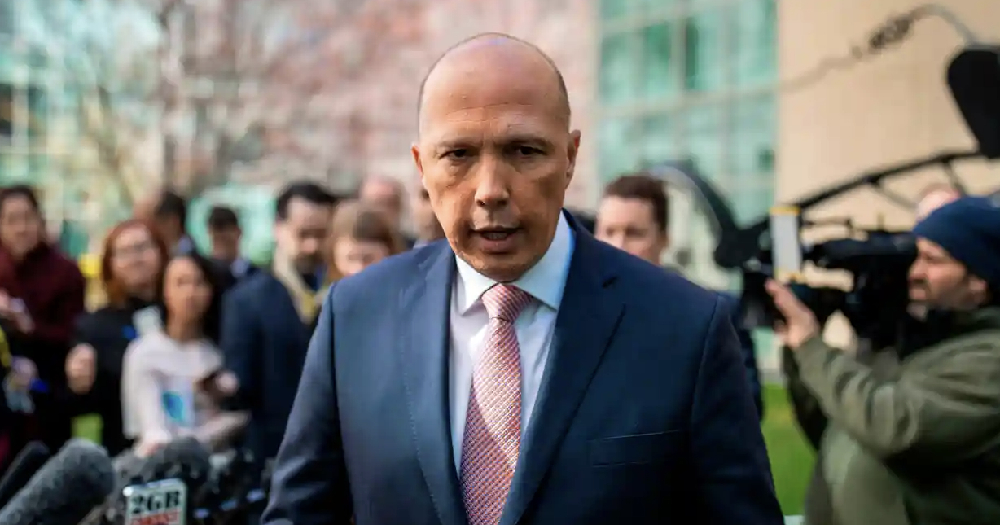Follow us on Telegram for the latest updates: https://t.me/mothershipsg
Australia will join the U.S. in defending Taiwan as not doing so is unthinkable as an alliance partner, Australian Defence Minister Peter Dutton told The Australian in an interview that was published on Friday, Nov. 12.
"Inconceivable" for Australia not to join U.S. to defend Taiwan
He further expressed his belief that the Chinese government has no right to claim Taiwan as its territory.
Elaborating on the defence ministry's plans, he said their overall strategy is to prepare for "the threat of conflict" in the region, and to handle an increasingly assertive China.
China has been "very clear about their intent to go into Taiwan", he said, adding that Australia needs to "make sure that there is a high level of preparedness, a greater sense of deterrence by [their] capability".
And should the U.S. chooses to defend Taiwan in the event of war between China and the self-ruled island, which Beijing views as a wayward province, it would be "inconceivable" for Australia to not support the U.S. in action, he said.
Nevertheless, Dutton was cautious in making this remark, saying, "I think we should be very frank and honest about that, look at all of the facts and circumstances without pre-committing, and maybe there are circumstances where we wouldn't take up that option, (but) I can't conceive of those circumstance."
Australia leaning closer to the U.S.
Australia is highly dependent on China economically. China is its largest trading partner and accounts for 32.6 per cent of its exports, according to the BBC.
However, tensions haven risen between the two countries in recent years.
Australia was the first country to have publicly banned Huawei and another Chinese company, ZTE, from building its 5G network in 2018. It later called for an international inquiry into the origins of Covid-19 in China, which invited angry backlash from Beijing.
China retaliated by blocking or slapping hefty tariffs on a number of Australia exports like barley and wine.
Bilateral projects have been halted as well, with Canberra deciding to cancel two agreements between China and Victoria state under the Belt and Road Initiative, Reuters reported.
But while trade tensions have impacted Australia's agricultural sector the most, the industry has been able to find new markets, such as Saudi Arabia, according to Nikkei Asia.
Trade with China in other areas like iron ore, which is Australia's top export, has continued as well, even helping to cushion the impact of the trade sanctions from Beijing.
As tensions between China and the U.S. continue under the Biden administration, which has remained tough on China in terms of its human rights records in Xinjiang and assertive behaviour towards Taiwan, Australia has been inching closer to its ally.
It is part of the Quad alliance with the U.S., Japan and India, as well as Aukus, a trilateral strategic alliance with the U.S. and UK, under which it could obtain sensitive nuclear submarine technology from the U.S.
Both partnerships were seen as part of a growing effort to counter China's rising economic and military power in the region.
Follow and listen to our podcast here
Top image via Sean Davey/AFP/Getty Images
If you like what you read, follow us on Facebook, Instagram, Twitter and Telegram to get the latest updates.
